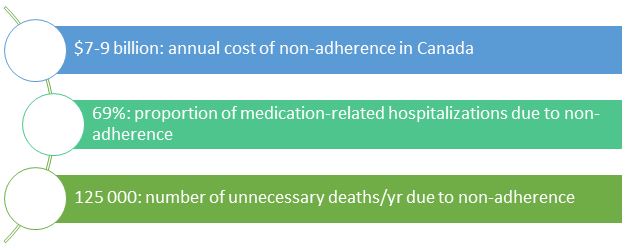CHÉOS Scientists are collaborating with patients to prevent complications from chronic inflammatory conditions.

When the body senses an infection or injury, the immune system kicks into gear to defend itself. Unfortunately, there are diseases where the body’s immune system is under the false impression that it needs to defend or repair itself and starts attacking healthy tissues. This can lead to different chronic inflammatory conditions which affect nearly seven million Canadians. Depending on the location of inflammation, this can become arthritis (joints), psoriasis (skin), and Crohn’s disease & ulcerative colitis (bowels).
To help the millions suffering various diseases arising from a common chronic condition, Arthritis Research Canada (ARC), North America’s largest clinical arthritis research centre, is supporting a research initiative called PRECISION. Led by Dr. John Esdaile, Scientific Director Emeritus of ARC, the goal is to prevent complications from skin, joint, and bowel inflammatory disease. With more than 45 publications and 27 primary investigators, including CHÉOS Scientists Drs. Mary De Vera, Linda Li, and Nick Bansback, PRECISION is well on its way to ensuring better care for patients with chronic inflammatory disease.
The powerful force that’s behind it — patient voices!

Patients have been involved in PRECISION and its various projects from the very beginning of the study’s planning phase. Eileen Davidson is one of them. She was given a life-altering diagnosis of rheumatoid arthritis at the age of 29 after enduring debilitating pain, struggling to do even simple tasks such as grocery shopping or walking five minutes to the train station. Since then, she has become a patient partner with ARC. “Participating in research has given me a deeper understanding of my health outside of what my rheumatologist or other health care providers can give me during short and infrequent appointments,” explains Eileen.
She tries to take part in as many studies as she can, and she sits on ARC’s Patient Advisory Board. “It has been an amazing experience to learn about my illness and give back to my community,” Eileen comments. “It has been a great way for me to grow as a patient. One of the best ways to fight a serious illness is through education.”
Tackling medication non-adherence by understanding patients
The overall goal of PRECISION is to prevent complications from chronic inflammation (such as blood clotting events, severe infections, and hip fractures), which involves understanding how patients manage their conditions.

Initially, a survey was sent out to those living in British Columbia with chronic inflammation and the results were eye-opening. Even though medication is readily available to help patients manage chronic inflammation, only one in six chose to manage the disease with medicine. The vast majority of patients preferred to focus on maintaining a healthy lifestyle, although that can be challenging to achieve without guidance from a health care provider.
“Medication non-adherence is truly an epidemic,” emphasizes Dr. De Vera. “In addition to getting patients involved, we must also engage their support networks. We need to borrow tools from other disciplines and bring them together. And we must be willing to create new knowledge.”
Dr. Bansback, Head of PRECISION’s Health Economics Core explains, “If a patient isn’t happy with a prescription regiment or a treatment option, they are less likely to follow through with it, even if it would prevent future health complications, and the cost implications are enormous.”
Dr. Li: “We worked with patients who wished to rely on themselves to manage their disease.”
Evidently, patients need to be involved with their disease management if it is to be successful. PRECISION researchers are working to understand how to support people living with chronic inflammation to prevent complications. Dr. Li, co-lead of the Knowledge Translation
and Ethics Core, recently completed her project Preventing Complications with Improved Physical Activity. “We worked with patients who wished to rely on themselves to manage their disease and had the willingness to use digital technology,” Dr. Li shares.

Her team helped participants set personalized goals using Fitbits, wearable physical activity trackers. Researchers used data collected from the Fitbits, in combination with FitViz, a web application developed specifically for this project. FitViz gathers information from the devices so that both patients and their clinicians can access Fitbit data to set daily goals based on the patient’s current physical condition.
Eileen was a participant in Dr. Li’s project. Her initial goal was 10,000 steps a day, a fairly high target for someone living with rheumatoid arthritis. “At first, I felt nervous about being able to complete that, especially with fatigue and joint pain. However, it wasn’t long where I was crushing 22,000 steps some days and noticing other benefits to my overall health.”
Ultimately, Eileen found the fitness tracker and app, with counselling by a physical therapist, helped her see how exercise was improving her fatigue, pain, and mood. She says, “This has motivated me to be even more active. And seeing me walking more every day and setting a goal has inspired my young son to want to walk more, too.”
The bigger picture of PRECISION: Inflammation, it’s complicated
These are just a few of the research projects underway as part of PRECISION. Since the start of the major study in 2014, three out of the six subprojects have been completed:
- A patient/rheumatologist/pharmacist dietitian team using electronic communication to better manage gout;
- Preventing complications in an Indigenous community: Improving quality of care; and
- Preventing complications with improved physical activity: Can self-monitoring technologies help?
In addition to the CHÉOS Scientists working on PRECISION, Drs. Kam Shojania, Mark Harrison, and Aslam Anis are also affiliated with ARC, working towards the goal of reducing the burden of chronic inflammatory disease.
For more information on PRECISION, please visit their website: https://www.arthritisresearch.ca/precision/.
Eileen Davidson is a patient advocate for those living with rheumatoid arthritis. Check out her blog as Chronic Eileen here: https://chroniceileen.com/.



